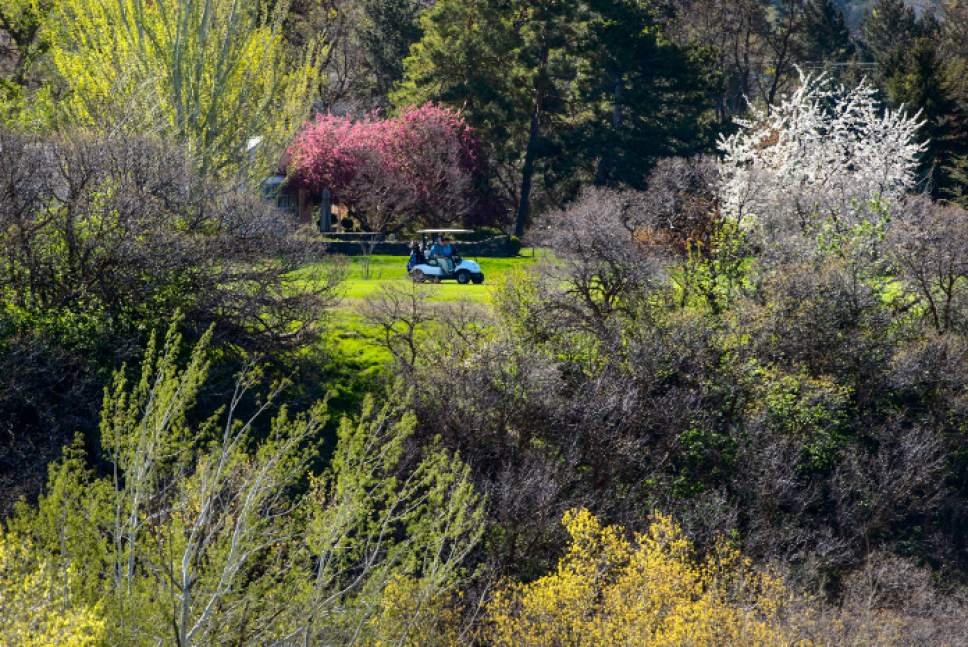This is an archived article that was published on sltrib.com in 2017, and information in the article may be outdated. It is provided only for personal research purposes and may not be reprinted.
Green fees at golf courses owned and operated by Salt Lake City will now be set at each course, sometimes fluctuating throughout the day, under an ordinance unanimously approved at Tuesday night's City Council meeting.
Rather than setting prices for the city's six courses en masse, which golf managers say can take months, golf directors will be allowed to offer deals to entice players to hit the links during slow times.
The city hopes the change will help break a series of losses that led it to close courses to save money. The city's golf division is on course to lose about $1 million in the fiscal year that runs from July 1, 2016, through June 30, 2017.
"We've only got three, four months left in the [fiscal] year. And it keeps raining," Dan Dent, the city's golf manager, said at a recent council meeting.
Dent's hope with the new ordinance is to give flexibility to the course operators, who can study player trends and offer discounts during low-turnout tee times. About half of available tee times go unused.
The changes will eliminate the systemwide tiered green fee structure — in which prices change depending on popular times of the season. They will also raise the price for the LoyalTee discount card — from $35 to $49.99 — and the discounts will be steeper.
Full-price green fees for 18 holes at Bonneville and Mountain Dell will be $38, Glendale will cost $32 to play and Rose Park will be $30. Fees are to remain the same at Forest Dale ($15) and Nibley Park ($14), which are nine-hole courses.
The changes, Dent said, will take effect almost immediately.
Dent also plans to give students and seniors — groups that comprise particularly avid golfers — more times to play at their discounted rates. Under the fee structure set for 2016, the city restricted the times courses could offer discounted rates to students and seniors.
Golf managers hope the change will raise revenue by about $128,000 in the next fiscal year. Dent also said he's looking for ways to trim administrative costs.
In adopting the ordinance, City Council members avoided more drastic changes to the way the city maintains open space for golf, but at least one council member has been critical of the account siphoning tax dollars.
"Let me just say that running a deficit is bad business for any organization, especially an enterprise fund," Councilman Derek Kitchen said this month.
"The capital needs that currently exist are still going to be unmet," Kitchen said. "So, to me, that's not a true plan for golf."
Twitter: @TaylorWAnderson











